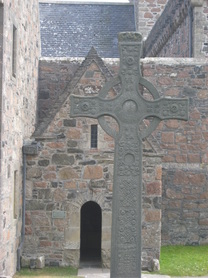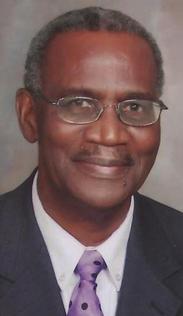posts
 In 590, Columban (543-615) left the monastery in Bangor, Ireland and established a community of missionary monks at Luxeuil, France where he served for twenty years. Though he initially found favor with the local king and was given the freedom to preach, he was later expelled by the king of Burgundy for preaching against the king’s immorality. After leaving Luxeuil, he and his monks continued evangelizing other parts of France and Northern Italy. While meditating on John 4--Jesus' famous encounter with the woman at the well--I ran across this prayer of Columban in Oden and Elowskys' Lenten devotional, On the Way to the Cross: 40 Days with the Church Fathers (Kindle Locations 244-250). He writes: I beseech you, merciful God, to allow me to drink from the stream which flows from your fountain of life. May I taste the sweet beauty of its waters, which sprang from the very depths of your truth. 0 Lord, you are that fountain from which I desire with all my heart to drink. Give me, Lord Jesus, this water, that it may quench the burning spiritual thirst within my soul, and purify me from all sin. I know, King of Glory, that I am asking from you a great gift. But you give to your faithful people without counting the cost, and you promise even greater things in the future. Indeed, nothing is greater than yourself, and you have given yourself to mankind on the cross. Therefore, in praying for the waters of life, I am praying that you, the source of those waters, will give yourself to me. You are my light, my salvation, my food, my drink, my God. Columban's meditations on John 4, which include an application of prayer, worship, and renewed perspective are quite worthy of imitation today. Lent, the 40 day period leading up to Resurrection Sunday, is a time for confession and turning away from sin. While this ought to be a daily discipline, it is still good to have a focused season for this. In my Lenten devotions, I've been using a guide called
On the Way to the Cross: 40 Days with the Church Fathers--a journey through John's Gospel with excerpts from sermons and writings from the church fathers. One benefit is that each day begins with this prayer of confession, which can also be accessed from the Book of Common Prayer. Almighty and most merciful Father, we have wandered and strayed from your ways like lost sheep. We have followed too much the devices and desires of our own hearts. We have offended against your holy laws. We have left undone those things that we ought to have done; and we have done those things that we ought not to have done; and there is no health in us. But you, O Lord, have mercy upon us sinners. Spare those who confess their faults. Restore those who are penitent, according to your promises declared to mankind in Christ Jesus our Lord. And grant, O most merciful Father, for his sake, that we may live a disciplined, righteous and godly life, to the glory of your holy name. Amen. I have found benefit in reading the prayer slowly, focusing on sins that I have committed and on what I have failed to do. I find much encouragement that the prayer ends with a focus on God's merciful nature--one who forgives sins and restores--and the renewed hope and expectation of new life in Christ.  "Behold, how good and pleasant it is when brothers dwell in unity! It is like the precious oil on the head, running down on the beard, on the beard of Aaron, running down on the collar of his robes! It is like the dew of Hermon, which falls on the mountains of Zion! For there the LORD has commanded the blessing, life forevermore." (Psalm 133 ESV) This was the text preached in chapel yesterday at CIU in a moving message by Dr. Peter Spencer, who changed the course of CIU's history in 1963 when he became the first black student admitted to the school. In addition to Dr. Spencer's testimony and message (podcast HERE), the story of CIU's deliberate move toward racial integration has been documented in Robert Priest's chapter, "Sharing the Gospel in a Racially Segregated Society: The Case of Columbia Bible College, 1923–1963," in Priest and Nieves (eds.) book, This Side of Heaven – Race, Ethnicity, and Christian Faith (Oxford University Press). On January 28, the CIU news feed ran this helpful story ahead of Dr. Spencer's coming: When Peter Spencer enrolled at Columbia Bible College (CBC) in 1963, he made history. Spencer is black. His admission to CBC, now Columbia International University (CIU), made CIU the first institution of higher education in South Carolina to voluntarily admit a black student. Spencer, who attended CIU from 1963-1965 returns to Columbia to address a Chapel service on Feb. 7 at 11 a.m. as part of CIU’s commemoration of Black History Month. The public is invited to attend. In the early 1960s, as the federal government began to mandate the integration of Southern public colleges, the CIU Board of Trustees was already grappling with the issue in March 1963. According the book, This Side of Heaven – Race, Ethnicity, and Christian Faith by Robert J. Priest and Alvaro L. Nieves, the board voted that “in the future no one be refused admission to the Bible College on the basis of race solely,” becoming the first white institution of higher education in South Carolina to voluntarily desegregate. Spencer, a black Jamaican, began classes at CIU on Sept. 5, 1963. At that time, CIU President Dr. G. Allen Fleece reported to the board, “our first Negro student, Peter Spencer from Jamaica, had the highest recommendation and has proven to be everything we could desire.” Spencer would go on to become a pastor and missionary statesman in his home country, currently serving as a member of the board of Jamaica Theological Seminary and chairman of the board of the Jamaica Bible College and Community Institute. In 1964, CIU would accept its first African-American student, one of the first private schools in South Carolina to do so. |
Archives
November 2023
|
 RSS Feed
RSS Feed
